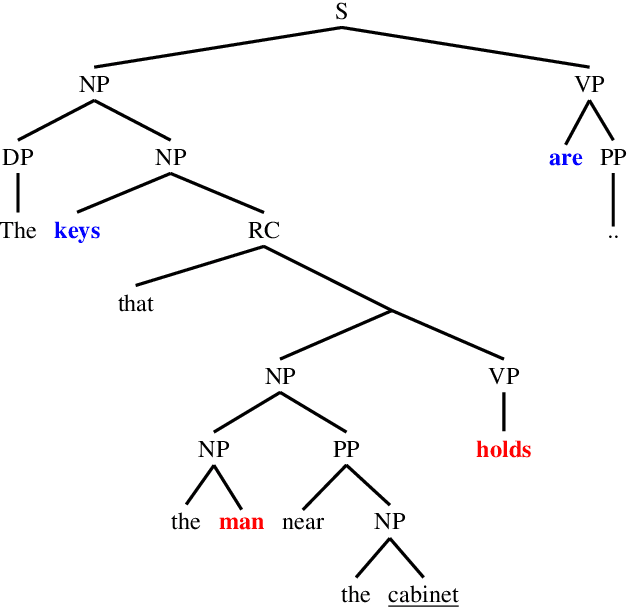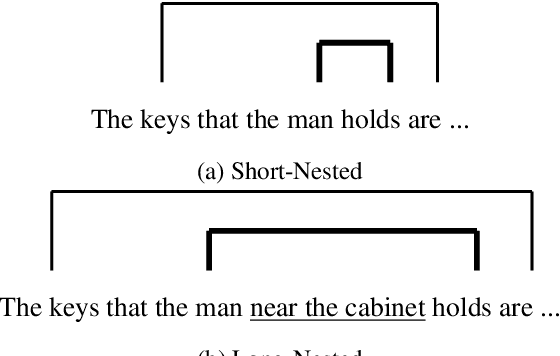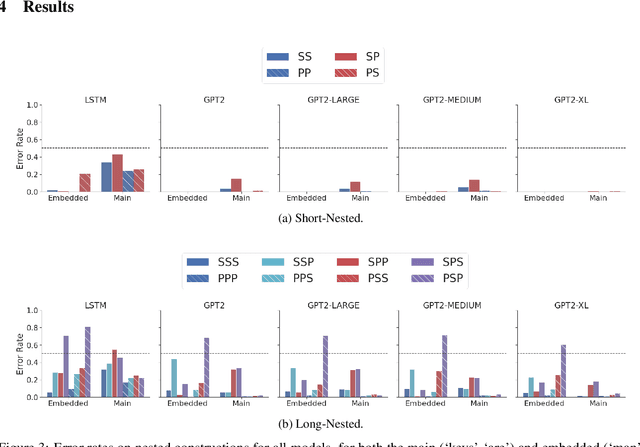Causal Transformers Perform Below Chance on Recursive Nested Constructions, Unlike Humans
Paper and Code
Oct 14, 2021


Recursive processing is considered a hallmark of human linguistic abilities. A recent study evaluated recursive processing in recurrent neural language models (RNN-LMs) and showed that such models perform below chance level on embedded dependencies within nested constructions -- a prototypical example of recursion in natural language. Here, we study if state-of-the-art Transformer LMs do any better. We test four different Transformer LMs on two different types of nested constructions, which differ in whether the embedded (inner) dependency is short or long range. We find that Transformers achieve near-perfect performance on short-range embedded dependencies, significantly better than previous results reported for RNN-LMs and humans. However, on long-range embedded dependencies, Transformers' performance sharply drops below chance level. Remarkably, the addition of only three words to the embedded dependency caused Transformers to fall from near-perfect to below-chance performance. Taken together, our results reveal Transformers' shortcoming when it comes to recursive, structure-based, processing.
 Add to Chrome
Add to Chrome Add to Firefox
Add to Firefox Add to Edge
Add to Edge